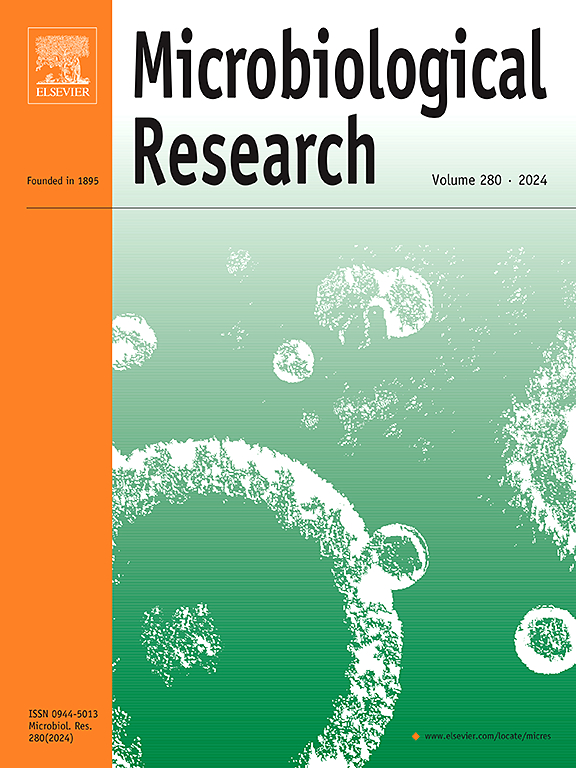葡萄糖cAMP-PKA信号对裂变酵母细胞分裂的代谢控制
IF 6.9
1区 生物学
Q1 MICROBIOLOGY
引用次数: 0
摘要
细胞质分裂是细胞分裂的最后一步,必须与细胞代谢状态精确协调,但其潜在的调节机制尚不清楚。本研究表明,在pombe Schizosaccharomyces中,葡萄糖信号通过进化保守的cAMP-PKA信号通路促进细胞分裂。Pka1催化亚基的缺失延迟了收缩肌动球蛋白环(CAR)的组装和收缩,而组成型PKA激活增强了CAR的完整性并加速了细胞分裂。在机制上,Pka1在富含葡萄糖的条件下下调应激激活的MAPK Sty1的基础活性,从而稳定formin For3及其有核肌动蛋白电缆,这些电缆共同调节CAR动力学。值得注意的是,cAMP-PKA信号也通过平行的、肌动蛋白电缆无关的机制促进细胞分裂。此外,在葡萄糖存在的情况下,线粒体呼吸通过不依赖pka的途径促进细胞分裂。这些发现揭示了将碳源代谢与细胞骨架组织联系起来的多层网络,并强调了严格控制PKA活性对稳健细胞分裂的重要性。本文章由计算机程序翻译,如有差异,请以英文原文为准。
Metabolic control of cytokinesis by glucose cAMP–PKA signaling in fission yeast
Cytokinesis, the final step of cell division, must be precisely coordinated with the cellular metabolic status, yet the underlying regulatory mechanisms remain poorly understood. Here we show that in Schizosaccharomyces pombe, glucose signaling promotes cytokinesis via the evolutionarily conserved cAMP–PKA signaling pathway. Loss of the Pka1 catalytic subunit delays assembly and constriction of the contractile actomyosin ring (CAR), whereas constitutive PKA activation enhances CAR integrity and accelerates cytokinesis. Mechanistically, Pka1 downregulates the basal activity of the stress-activated MAPK Sty1 under glucose-rich conditions, thereby stabilizing the formin For3 and its nucleated actin cables, which collaborate to regulate CAR dynamics. Remarkably, cAMP–PKA signaling also facilitates cytokinesis through a parallel, actin cable–independent mechanism. Additionally, mitochondrial respiration contributes to cytokinesis in the presence of glucose through a PKA-independent pathway. These findings reveal a multilayered network that links carbon source metabolism to cytoskeletal organization and underscore the importance of tight PKA activity control for robust cell division.
求助全文
通过发布文献求助,成功后即可免费获取论文全文。
去求助
来源期刊

Microbiological research
生物-微生物学
CiteScore
10.90
自引率
6.00%
发文量
249
审稿时长
29 days
期刊介绍:
Microbiological Research is devoted to publishing reports on prokaryotic and eukaryotic microorganisms such as yeasts, fungi, bacteria, archaea, and protozoa. Research on interactions between pathogenic microorganisms and their environment or hosts are also covered.
 求助内容:
求助内容: 应助结果提醒方式:
应助结果提醒方式:


